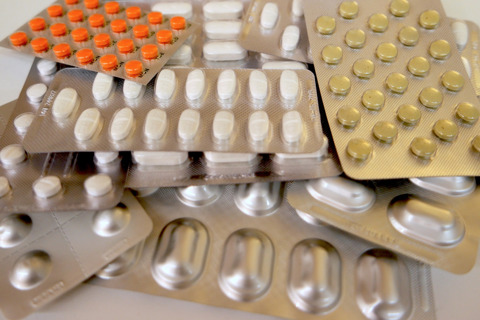
Weight loss as vital as any medication in the battle against type 2 diabetes
DRWF Research Manager Dr Eleanor Kennedy blog reports from Day Seven of the Diabetes UK Professional Conference.
Day Seven is dominated by another of the prize lectures. This time, the Banting Memorial Lecture. As the chairman of this session, Professor Naveed Sattar says in his introduction, this lecture is always a highlight in the conference diary, “particularly in the year that is the centenary for Frederick Banting’s discovery of insulin”.
This year, called Banting, banting, banter and bravado: Convictions meet evidence in the scientific process, it is delivered by Professor Mike Lean.
Professor Lean doesn’t really need much introduction being one half of the team who pioneered and led the DiRECT Study that has had so much success over the past few years, but he begins with a short history of the discovery of insulin 100 years ago covering the discovery and paying tribute to the research models that helped in this.
How weight loss could lead to type 2 diabetes remission
Professor Lean spends much of his talk describing how his early research on brown adipose tissue shaped his thinking because this tissue, active in babies, when expanded as “ectopic fat” by overfeeding becomes thermogenically inactive in type 2 diabetes. Weight gain/obesity is the main driver of type 2 diabetes, but it is a reversible driver. A 15kg intentional weight loss might normalise life expectancy with type 2 diabetes, which he starkly reminds us has just a 50% 10-year survival rate compared to other illnesses like breast cancer which has an 80% 10-year survival figure and non-Hodgkins lymphoma which has a 60% 10-year survival rate.
This segues into the DiRECT Study, a cluster randomised study in Scotland and the north-east of England. Patients were recruited from primary care and had an average body mass index of 35, but who were not yet on insulin therapy. They were advised on their very first visit to stop all anti-diabetes and anti-hypertensive medications to prevent against postural hypotension and hypoglycaemia (low blood glucose levels). Then, for three months, those in the intervention arm were put on a formula total diet meal replacement of 830kcal per day. For the two months after this period, there was food/meal reintroduction to normalise behaviour and up to 24 months thereafter there was the weight loss maintenance phase (40-50% carbohydrate-based).
Diabetes remission was well sustained for a given weight change in the intervention group. There was a corresponding drop in blood pressure (average 10mmHg) with a prevention of postural hypotension.
After 24 months, versus control, the results demonstrated lower weight, a better quality of life, a lower HbA1c with fewer on medication, lower blood pressure with fewer on medication, a lower cardiovascular disease risk and a lower cost to the NHS with fewer drugs, consultations, serious adverse events etc.
Professor Lean called this “a multi-win situation”.
He concluded by saying that healthcare professionals should treat overweight/obesity (the underlying disease process) seriously, prioritising people with pre-diabetes or type 2 diabetes as early as possible. Weight loss for remission is, he maintains, as important as chemotherapy is for cancer.

And the future?
Well, novel diet strategies including the 5:2 diet and flexible diet compositions etc, should be investigated. New pharmaceutical agents as adjuncts to diet and food supplements to increase the endogenous production of GLP-1 are also on the radar.
Professor Lean finished his talk with a profound message – the four co-discoverers of insulin, Banting, Best, Collipp and Macleod, sold the insulin patent for $1 to the University of Toronto as a “gift to mankind”.
A fantastic thing to do. And a fantastic lecture.
From here I move over to another session…
The question is why?
Type 2 diabetes results in part from accumulation of fat in the liver and pancreas. Liver fat is linked to insulin resistance and pancreatic fat inhibits beta cell function. The speaker stated that “this is one part of the long silent scream that leads to type 2 diabetes as your liver function worsens”.
And this takes us all the way back to the start of Day Seven.
Reduced carbohydrate intake leads to reduced circulating insulin, reduced liver and pancreatic fat, reduced insulin resistance and increased insulin secretion and a reversal or remission of type 2 diabetes.
And with that neat squaring of the circle, it is time to conclude for today and to start looking forward to Day Eight!
Follow Dr Eleanor Kennedy on Twitter: @DRWFEleanor
Support DRWF by making a donation here
Find out more about DRWF-funded research here
Find out more about DRWF fundraising here
For latest update follow DRWF on Facebook, Instagram and Twitter
To receive the charity’s latest bulletins as they become available, please sign up here
Read DRWF diabetes information leaflets here
Join the Diabetes Wellness Network here
Recent News


